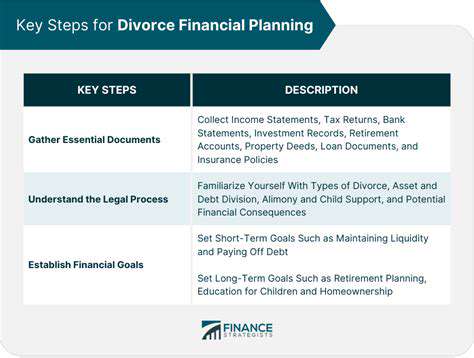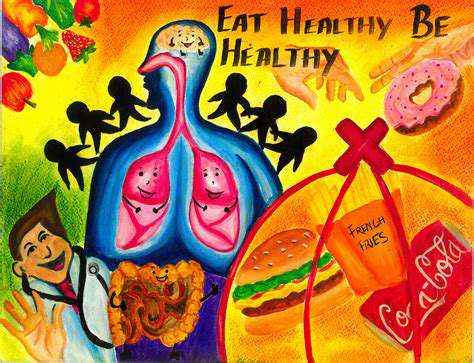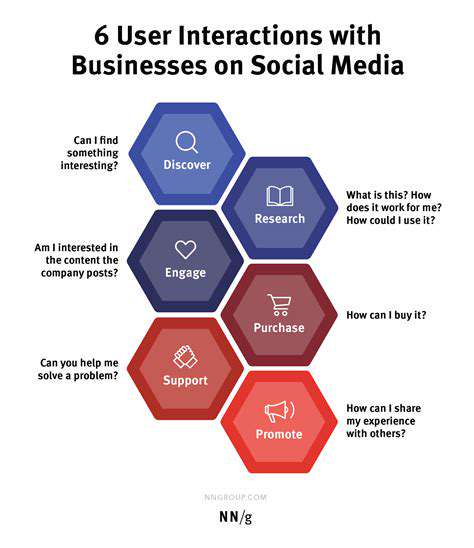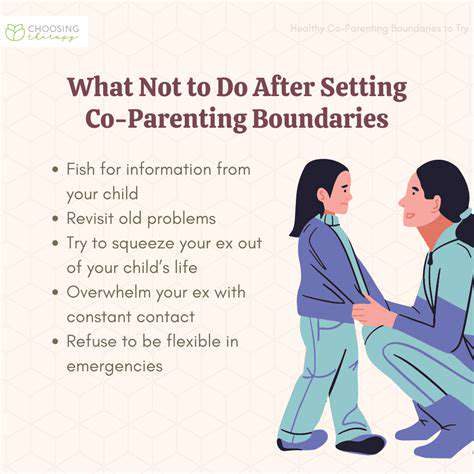overcoming breakup heartbreak step by step
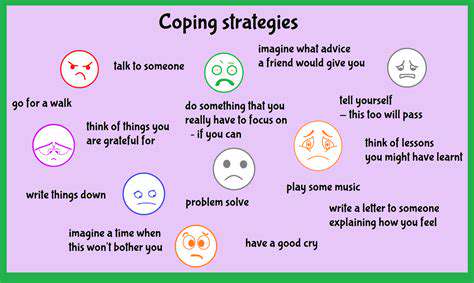
Understanding the Triggers
Emotional turbulence after a breakup is completely normal, often sparked by memories, places, or even mundane daily routines. Pinpointing these emotional landmines—whether it's hearing your song or passing by your favorite café—helps you brace for impact. When you recognize what sets off your grief, you regain some control over the waves of sadness.
For instance, that framed photo on your dresser might ambush you with fresh pain every morning. Moving it temporarily isn't weakness—it's strategic self-care. This awareness creates breathing room between trigger and reaction, giving you precious seconds to deploy coping tools.
Developing Emotional Regulation Techniques
Mastering your emotional responses is like building an internal emergency toolkit. Simple grounding techniques can short-circuit spiraling thoughts: press your palms together firmly, name five things you see around you, or slowly exhale for longer than your inhale. These physical interrupts break the cycle of rumination.
Journaling offers another powerful outlet. When negative thoughts loop endlessly in your mind, pouring them onto paper often reveals their irrational core. That voice saying You'll never love again loses power when exposed to daylight. Keep a notebook by your bed for those 3 AM mental tornadoes.
The Importance of Self-Compassion
Breakups can make us incredibly cruel—to ourselves. Would you tell your best friend they're unlovable because their relationship ended? Then why say it to yourself in the mirror? Practice speaking to yourself with the same gentle encouragement you'd offer a heartbroken loved one.
Create a self-compassion mantra for tough moments: This hurts terribly, but pain doesn't last forever. I'm growing through this. Post it on your fridge or set it as a phone reminder. Emotional wounds heal better with kindness than with self-flagellation.
Building a Support System
Isolation magnifies heartbreak. Identify your emotional first responders—those friends who listen without judgment and don't rush you to get over it. Be specific about what you need: Can we just watch movies tonight? I need distraction more than advice.
Consider joining a breakup support group, either locally or online. There's profound comfort in hearing others articulate exactly what you're feeling. When someone says I keep checking their social media even though it destroys me, and five heads nod in understanding, the shame dissolves.
Lifestyle Adjustments for Emotional Well-being
Your body and mind are interconnected battlefields post-breakup. Prioritize sleep hygiene—those 2 AM Instagram deep dives sabotage next-day resilience. Eat regular meals even when food tastes like cardboard; low blood sugar amplifies emotional volatility.
Force yourself into motion. A 20-minute walk while listening to an engaging podcast provides triple benefits: sunlight, endorphins, and a mental break from obsessive thoughts. Reorganize your living space to disrupt old relationship energy and symbolically make room for new beginnings.

Moving Forward: Setting Boundaries and Creating a Positive Future
Understanding the Importance of Boundaries
Clear boundaries are the guardrails of healing. They're not about punishing your ex, but protecting your fragile emotional ecosystem. Start with digital boundaries: mute or unfollow rather than block (which often creates more obsession). Gradually increase the time between checking their profiles—think of it like weaning off an addiction.
Identifying and Communicating Your Needs
Healing requires ruthless honesty about your limitations. If certain friends constantly bring up your ex, say I appreciate your concern, but I need our hangouts to be a no-[ex's name] zone for now. True supporters will understand. For others? Their discomfort with your boundaries reveals their priorities.
Reconnecting with Yourself and Your Values
Relationships reshape our identities. Now's the time to excavate your pre-relationship self. What hobbies got sidelined? Which friends saw less of you? Revisit old passions like you're reintroducing yourself to a fascinating stranger. That guitar gathering dust? Those half-finished short stories? They're breadcrumbs leading back to yourself.
Creating a Support System
Audit your social circle. Some friends thrive on drama, others offer shallow platitudes. Identify those rare souls who sit with you in the messy middle—who say This sucks instead of You're better off. Cultivate those relationships intentionally. If your circle feels thin, explore new connections through hobby groups or volunteer work.
Managing Exposure to Triggers
Create a breakup first-aid kit for triggering moments: a playlist of empowering songs, a letter to yourself about why the relationship ended, a list of friends to call. When you accidentally see their new profile picture, go straight to the kit instead of spiraling. Over time, these tools rewire your neural pathways toward resilience.
Developing Healthy Relationship Patterns
Once the acute pain subsides, conduct a forensic analysis of the relationship. Not to assign blame, but to identify patterns. Did you ignore red flags? Compromise core values? Create a never again list and a must have list for future relationships. This turns pain into wisdom.
Focusing on Personal Growth and Self-Care
Channel your emotional energy into tangible growth. Always wanted to learn Italian? Take a class. Never prioritized fitness? Train for a 5K. These concrete achievements rebuild self-esteem atom by atom. Track small wins—getting through a day without crying, cooking an actual meal—because healing happens in millimeters, not miles.
Read more about overcoming breakup heartbreak step by step
Hot Recommendations
- divorce asset division legal checklist
- how to overcome breakup shock step by step
- divorce self growth strategies for single parents
- how to overcome divorce trauma quickly
- emotional recovery tips for breakup survivors
- divorce breakup coping strategies for adults
- how to find effective divorce counseling online
- divorce custody battle resolution strategies
- how to find affordable breakup counseling services
- best co parenting solutions for divorce cases


